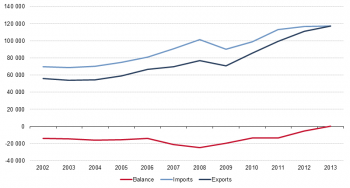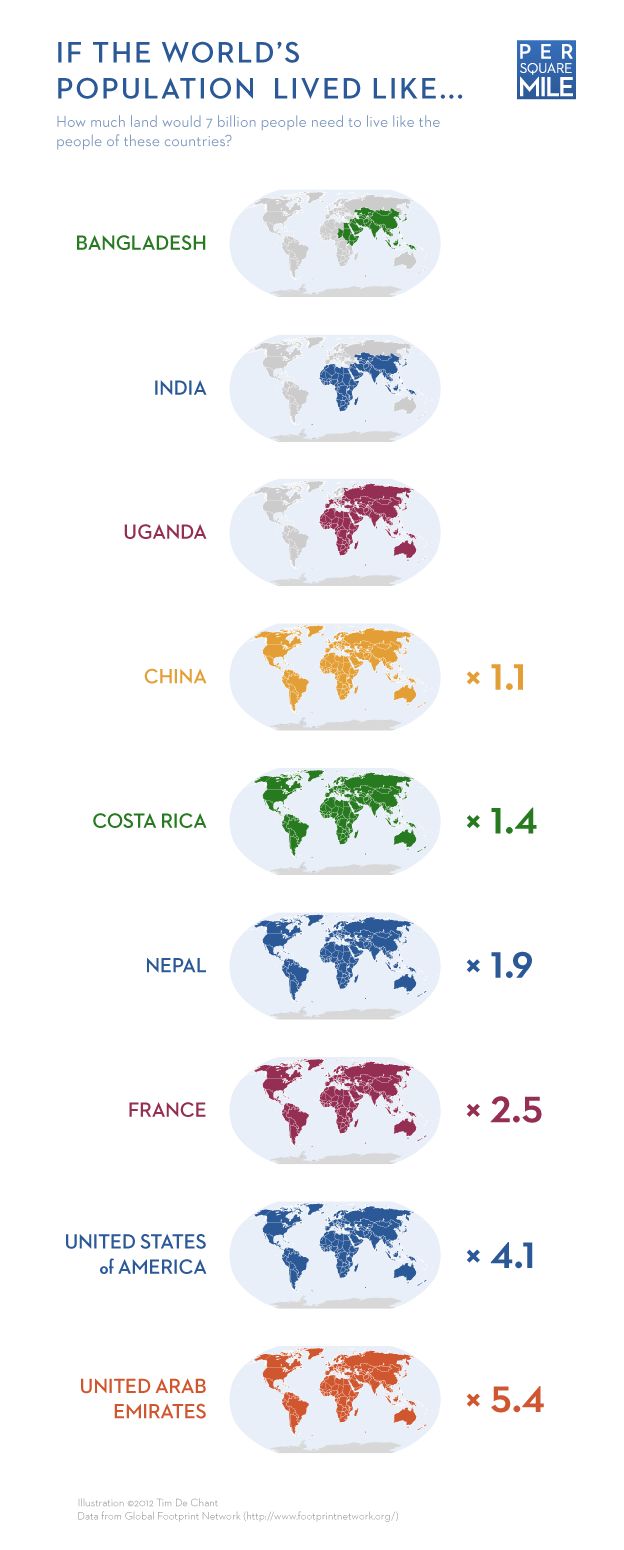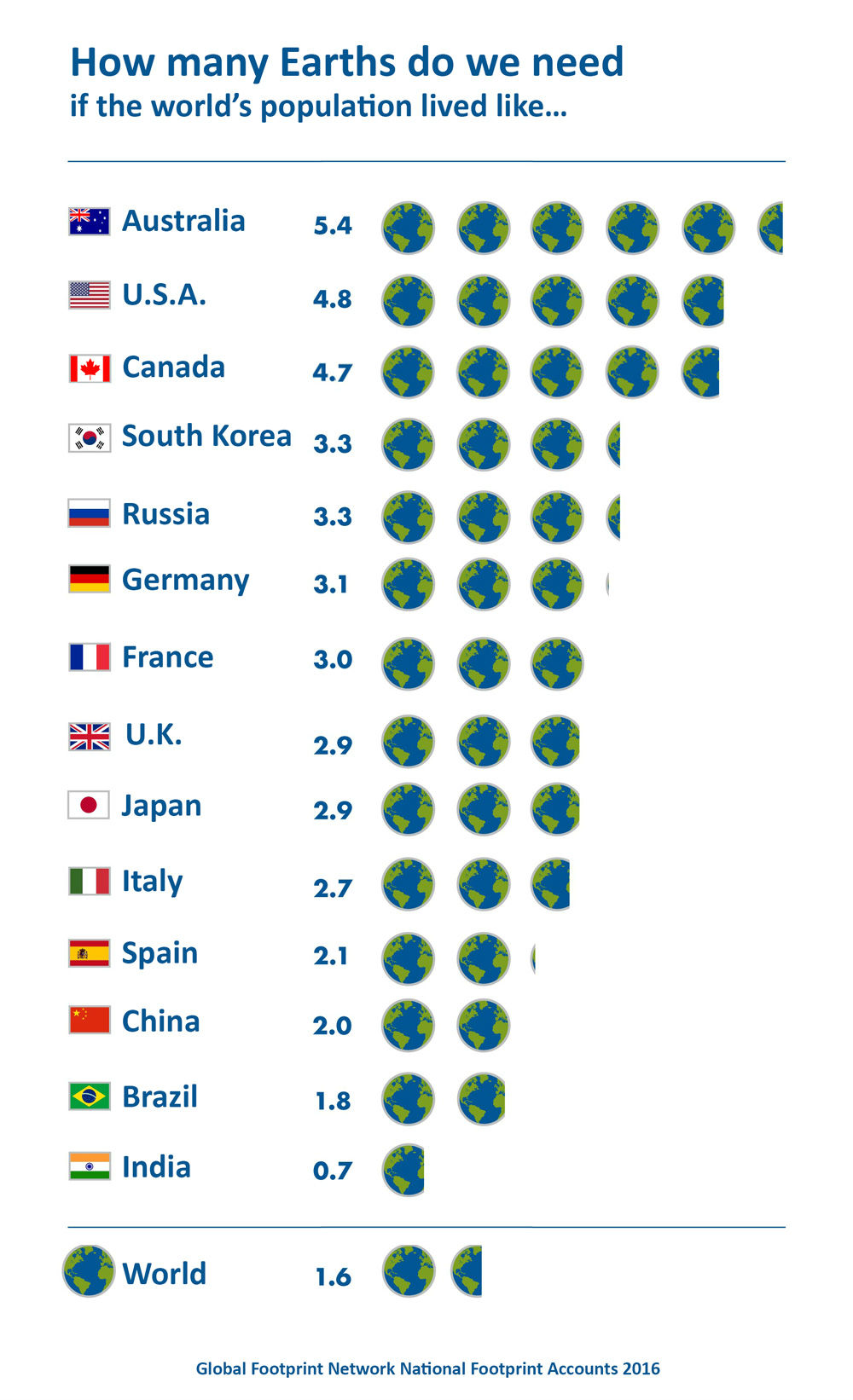LeBrok
Elite member
- Messages
- 10,261
- Reaction score
- 1,617
- Points
- 0
- Location
- Calgary
- Ethnic group
- Citizen of the world
- Y-DNA haplogroup
- R1b Z2109
- mtDNA haplogroup
- H1c
Good example. It means we should catch fewer wild fish and eat farmed fish or something else. For the same reason we have limits on hunting wild animals on land, and compensate by bigger production of domesticates. All fine. We found the way to sustain food production on land, we just need to do it in ocean.Let me explain what sustainabilility is not, with an example
If you catch more fish than fish population increase in your local sea zone and after years, you have to go international zone. After decades you have to go other continental zone till there is no more space to go.
For more detail, search Somalia - European Fishers.
In this case "healthy" ecosystem will be when people go back to Hunter Gatherer ways. Even if we let the big mammals to roam free through Europe and Turkey, their population will be in miniscale to original size of population before advent of agriculture.I can't agree this argument. Big mammals and other big animals are clear sign of health ecosystems. If the top of ecosystem is ok, you can be sure that other levels are ok too.
Think this way. About 10 kya there were extra big mammals through Eurasia and America, from Mammoths, 2 ton Ground Sloths, rhinos, to saber tooth cats. Do you find fauna of Northern Hemisphere unhealthy due to lack of them? What would be the sign of nature being "unhealthy"?
Heck, the other big mammals moved from south to north when ice age ended, creating way different fauna balance than before. Is this unhealthy too?
Don't take me wrong, I'm not arguing against deer, wolf of bears living in forests or nature reserves. I'm just arguing subjective term "healthy" environment, and if nature could get away with them, without major hiccups.
The solution is to remove human settlements and all will be fine.The reduction of lions and leopards from areas of sub-Saharan Africa caused the baboon population to swell. This unexpectedly increased transmission of intestinal parasites from baboons to humans as the primates were forced to forage closer to human settlements.
You don't see the bright side. Population of seeded plants increased in that area, because baboons eat fruit and excrete seeds together with fertilizer. It is about new balance, nature will find the way, than about supposed "health" of environment. Which usually denotes the way nature was before people changed it. Sometimes, if people would run nature, they would keep preserving all the species from going extinct. People, with all their loving hearts for the nature, would stop evolution. It would be a just nature. Every species would have the same place in nature, like it used to be since people took control, and would be to the end of the world.
Fire is good, it recycles nutrients and starts new life. It is part of nature.As large ungulates recovered from a devastating rinderpest epidemic in the Serengeti in Africa, herbivory increased, and the frequency of wildfire declined in that region. Wildfire frequency increased following the late Pleistocene/early Holocene decline of megaherbivores in Australia and the northeastern United States.
I don't get it. Phytoplankton is eaten by sea protozoa and microbes, protozoa by crabs and fish, which excrete them to the bottom of the ocean. If the whales went missing, other animals took their place at the plancton table and increased in numbers. Again it is about a new balance than things being wrong/right or healthy.Industrial whaling in the 20th century resulted in the loss of large numbers of plankton-consuming great whales, which are now known to sequester carbon into the deep sea through deposition of feces. The result has been the transfer of approximately 105 million tons of carbon into the atmosphere that would have been absorbed by whales, contributing to climate change.
Last edited:






